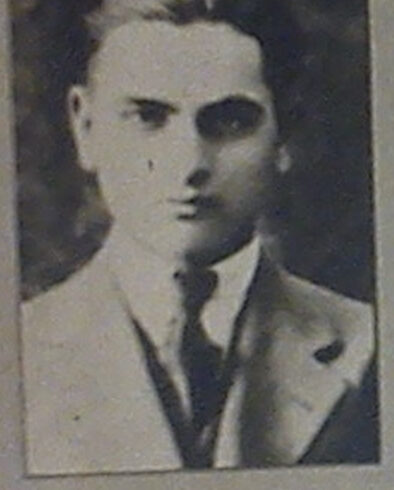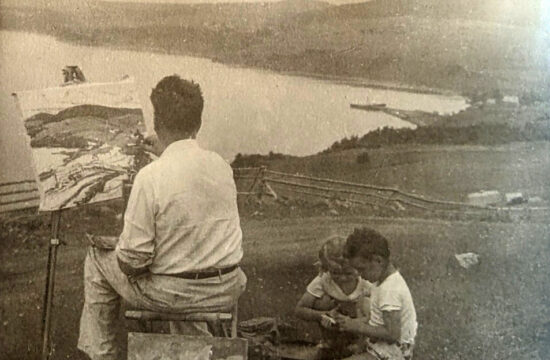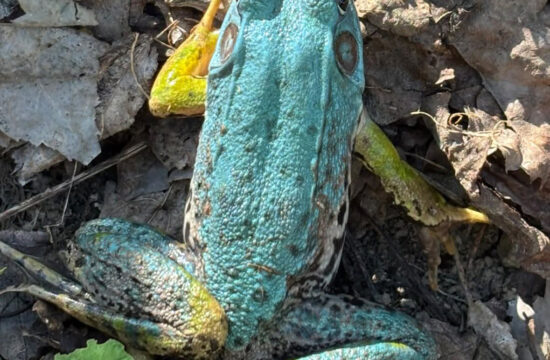By Thomas Smith
his spring, I attended Minden Hills’ clean up of the Minden Hills cemetery on Bobcaygeon Road. While walking around with township staff, I was struck by a grave that had a red, yellow, and blue flag on it. Unrecognizable as any country’s flag, further inspection revealed a laminated placard explaining that the grave of Nikodem Falkowski was a veteran of the Spanish Civil War.
If you are like me, you had not heard of the Spanish Civil War before.
Born Aug. 18, 1909 in the modern day Brest Region of Belarus (formerly Poland), Falkowski immigrated to Canada in 1929 on the S.S. Montclare and lived in Toronto.
Transplantation to Canada from Poland brought both language and cultural barriers for immigrants like Falkowski.
Experiencing the economic slump of the 1920s brought great disdain for many, leading many immigrants (of which was particularly fervorous in Polish, Finnish, and Ukrainian communities) to join the efforts of the Communist Party of Canada to seek justice against Canada’s capitalist system in matters of social injustices and prevalent unemployment.
It was likely through his activism with the Communist Party or pro-communist Polish language publications in Toronto where Falkowski learned of the Mackenzie-Papineau Battalion (Mac-Pap Battalion), a part of the XV International Brigade that was fighting in the Spanish Civil War.
Interestingly, while volunteers from the United States primarily consisted of highly educated individuals, the majority of Canadian volunteers that formed the Mac-Pap Battalion almost entirely consisted of working class citizens, like Falkowski.
For some context, Polish immigrants faced discrimination in Canada. It was not uncommon to deny selling property to a Pole (or to any person of colour, or of Armenian, Hungarians, Italian, or Greek nationality, for that matter).
In Spain, General Francisco Franco sought to overthrow the democratically elected Republican government. When the war was declared, western countries such as Canada, Great Britain, and the United States of America refused to get involved with the conflict. By 1936, Adolf Hitler and Benito Mussolini were actively supporting Franco’s Nationalists.
Unperturbed, W.L. Mackenzie King wrote extensively on his fondness for Hitler as late as June of 1927. In one instance, King wrote in his diary “he is really one who truly loves his fellowmen, and his county, and would make any sacrifice for their good.”
King commended Hitler on his love of animals, vegetarian diet, and likened him to a Joan of Arc figure. The Canadian Parliament applied the Foreign Enlistment Act that same year, making it illegal for volunteers to go and fight in the Spanish Civil War.
This did not stop the Mac-Paps. Volunteering was as simple as going to their headquarters at Queen and Spandina in Toronto. However, only those dedicated to eradicating fascism were allowed to join their ranks. The age range of the Mac-Paps was also the highest of the international volunteers, with the average age being in the late 30s.
Members of the International Brigade were sent to fight a losing battle. Conditions of the Spanish Civil War were harsh and with a lack of manpower and inferior resources, the Republican army did not seem to have a chance at victory.
On May 30, 1937, Falkowski survived the sinking of the MV Ciudad de Barcelona en route from Marseille to Spain, carrying many Canadian volunteers destined for the International Brigade. Likely bribing his way through Europe, Nikodem’s No. 2 company fought in the Battle of Ebro. In this battle, his company was unfortunate enough to be the first to experience the power of German 88mm artillery guns in war. Forced to retreat, the Mac-Paps were sent to the Sierra de Pandols, an area that was already war-torn and littered with bodies of both Republicans and fascist Nationalists. Holding out on Hill 609, their company received heavy artillery fire, reducing their numbers by half and killing two of their commanders.
Spanish officials announced the International Brigades’ retreat on September 23, 1938.
Over 46 per cent of Canadians that volunteered to fight fascism in Spain perished in their efforts.
Falkowski himself returned to Canada on February 3, 1939 (Please note that I have not been able to find more information on what he did in the time between the retreat of the International Brigade and his return to Canada).
Derek Blackadder, a member of the Friends and Veterans of the Mackenzie-Papineau Battalion, visited Falkowski’s grave on Remembrance Day in 2024.
The organization is dedicated to keeping the memory of the 1,600 soldiers that volunteered to leave Canada behind to fight fascism in Spain.
An avid historian, Blackadder first connected with the group through social media.
“It is remembrance,” said Blackadder.
Despite their foresight, and commitment and willingness to fight against fascism, the Mac-Paps were treated remarkably badly when they returned, says Blackadder.
After returning to Canada, veterans of the Spanish Civil War were closely monitored by the Royal Canadian Mounted Police, were denied to fight in World War II, and continued to face discrimination. The RCMP kept note of the veterans and were quick to use it against them in legal matters, some being sent to prison.
In 1985, President Ronald Reagan commented on the International Brigade, saying that most Americans feel that those who fought with the Loyalists, fought on the “wrong side of the war”.
Later in life, Falkwoski worked as a banquet porter at the Royal York in Toronto. He died in March of 1992, being buried in Minden HIlls Cemetery alongside his brother Paulin.
Only one veteran of the Mac-Pap Battalion would ever see recognition in Canada for his efforts.
In 2001, Jules Paivio, the sole surviving member of the Mac-Pap Battalion was in attendance at the unveiling of the Mackenzie-Papineau monument at Rideau Falls Park. The monument was a collaborative effort between the National Capital Commission and the Embassy of Spain. At the event, Paivio was granted Spanish citizenship for his service.
The Canadian government has yet to officially recognize the efforts the Mac-Paps made to bring an end to fascism in Spain.
The inaction of the Canadian government is a historical scar many have forgotten.
I promise Falkowski and his family one thing; that I will remember.
“There are dangers in our world people need to pay attention to,” said Blackadder. “If we don’t slow these dangers before they grow too much, we are likely to end up repeating the events of the 1930s.”





 Nikodem Falkowski (who went by Mike) appeared in a 1937 flyer showing Hungarians that fought in the Spanish Civil War (even though he was Polish). /Submitted
Nikodem Falkowski (who went by Mike) appeared in a 1937 flyer showing Hungarians that fought in the Spanish Civil War (even though he was Polish). /Submitted 






